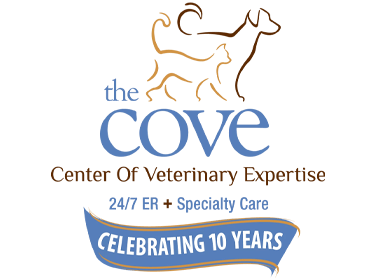Pet Vaccinations

The American Animal Hospital Association’s (AAHA) Canine Vaccine Guidelines remind us that not all pets are alike. That’s why vaccine selections need to be individualized, with due consideration for factors such as age, health status, geographic area, travel, and exposure risks.
In 2016 there were changes in the vaccination protocols recommended regarding the Canine Influenza Virus (CIV). You may have heard about the early 2016 Canine Influenza outbreak in and around the Chicago area, which spread to 23 states within 5 months. There are two strains of the Canine Influenza Virus, and both have been reported. Canine Influenza Virus H3N8 was first reported in 2003, and Canine Influenza Virus H3N2 in March 2015. These strains are not related. Due to this outbreak ALL dogs should be vaccinated against both strains of this highly contagious virus.
All dogs are at risk to potentially contract this virus. Dogs with a higher risk include those who get boarded, groomed, attend training classes, go to dog parks or have any form of contact with other dogs. Canine Influenza Virus can be spread by direct contact and can be airborne. The symptoms of both strains of the flu are very similar in nature. The only way to distinguish which type is present is through diagnostic testing. Some common symptoms include coughing, runny nose or eyes, lethargy, high fever, or reduced appetite. Symptoms and severity may vary from dog to dog, with some showing no signs at all and others progressing to pneumonia and even death in unfortunate cases.
Currently at Great Neck Veterinary Clinic, we provide and recommend the vaccine for the H3N8 strain of CIV. In addition to the H3N8 strain of CIV we now have a vaccine to help protect your pet from the H3N2 strain of CIV. If your pet has not had either vaccine in the past or has lapsed and you choose to immunize, two vaccines (for each type) will be needed 2-4 weeks apart. If your pet has received only the vaccine that protects for the H3N8 strain then your pet will need to have two vaccines for the H3N2, 2-4 weeks apart. In order to protect all patients, after July 1, 2016 should your pet need be admitted to the hospital for surgery, boarding or due to an illness both vaccines will be required.
Of course, we recommend an annual rabies vaccine, usually at the time of an annual examination. This is very important for licensing your animal with the City of Virginia Beach.
One other important vaccine is for kennel cough, a serious and contagious illness usually linked with the bordetella bronchiseptica bacteria. This may be recommended if your pet is boarded, groomed, or around other animals.
Here at Great Neck Veterinary Clinic, we are committed to the well-being of you and your pet. We strive to provide the best care possible, at all times. We feel ALL canine patients should get these vaccines. Please feel free to contact our office at (757) 481-2800, or email us to make an appointment. Should you have any questions or concerns regarding the Canine Influenza Virus (CIV), here is some more information about both strains of the canine influenza virus.
We believe it’s important for your pet to be on flea, intestinal parasite, and heartworm prevention year-round. Unlike many other parts of the country, Virginia has flea and tick problems all year—not just during the hot, humid summer months. Preventives not only protect your pet from multiple parasites, but also your family because we live in such close contact with our furry family members.
Parasites can wreak havoc on both your pets and your family, causing serious illness or even death. Fortunately, they are easily prevented with monthly chewable tablets or topical solutions. At Great Neck Veterinary Clinic, we carry a variety of the highest quality preventives. This allows us to help you select the preventive that will be best suited for your pet based on his or her lifestyle and individual needs.










